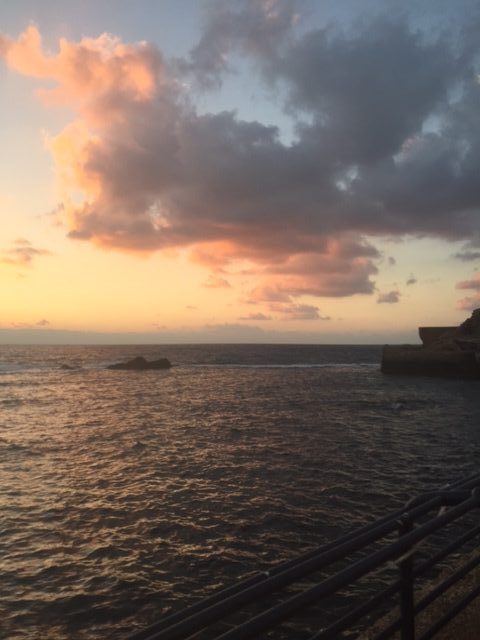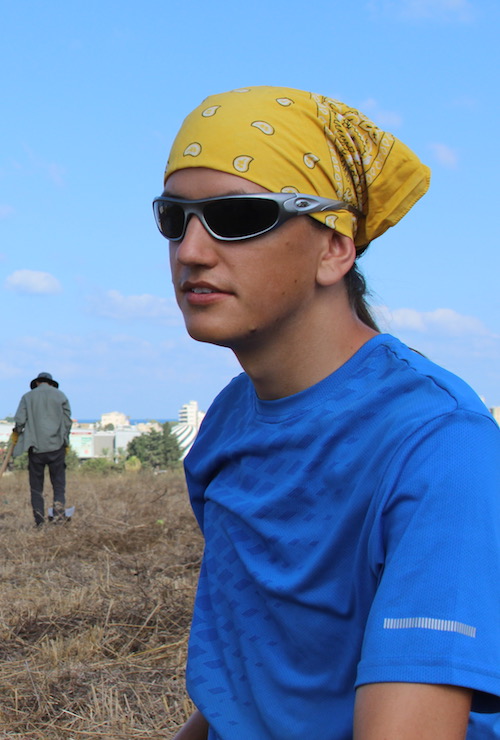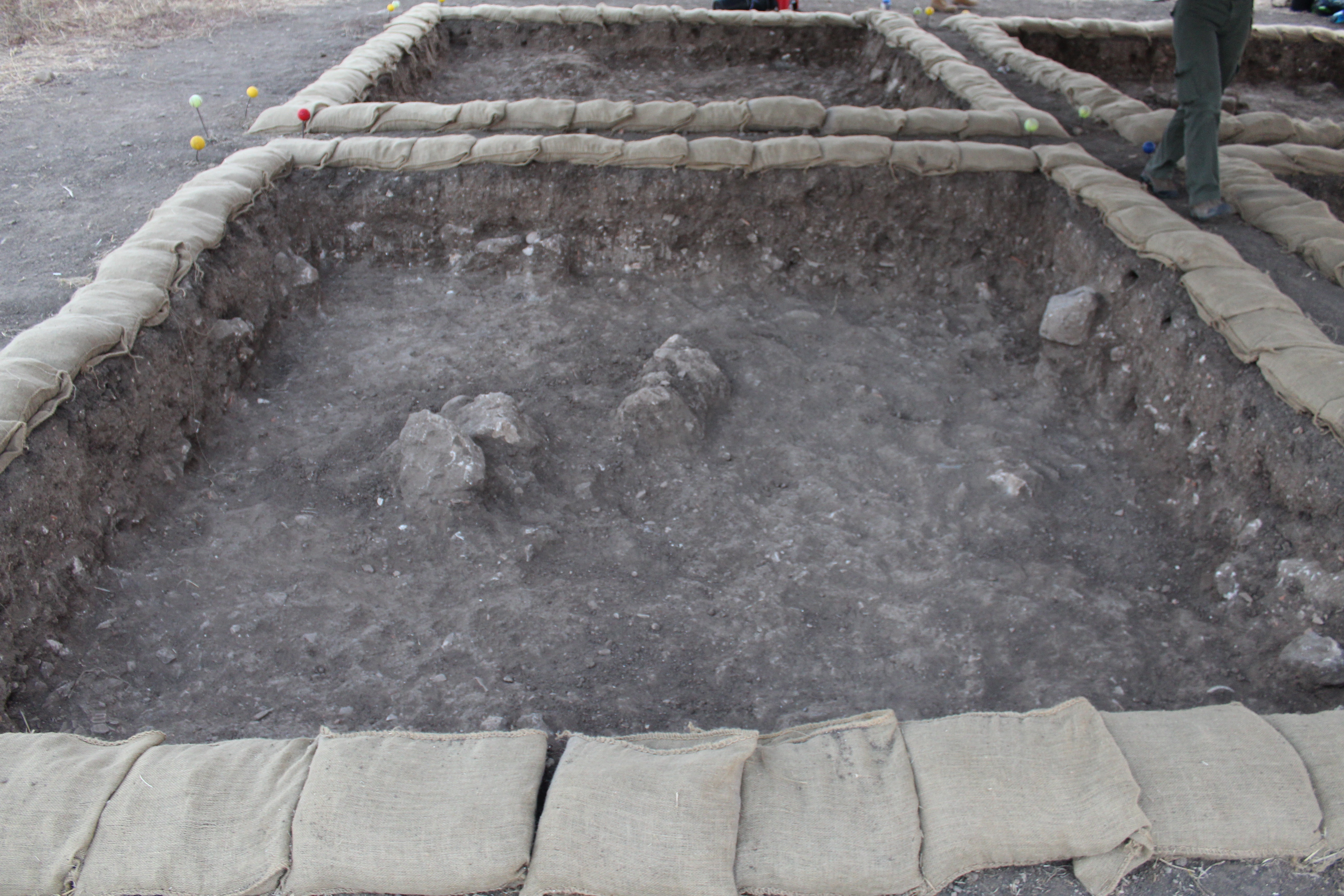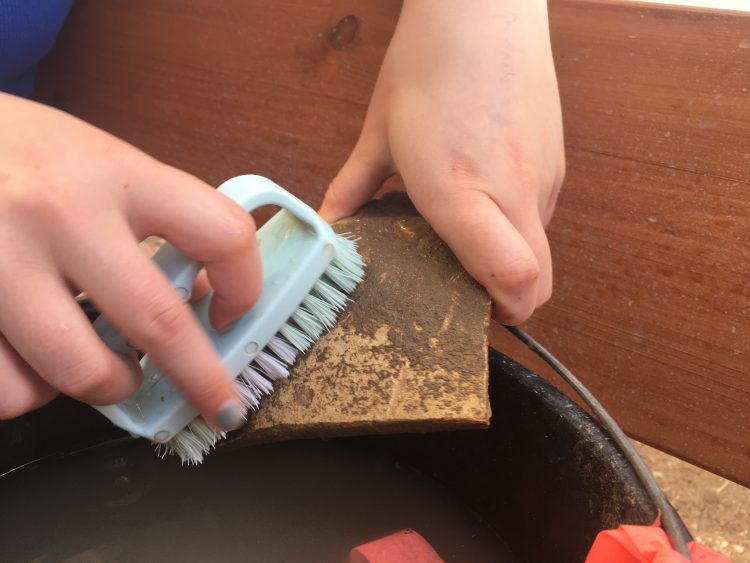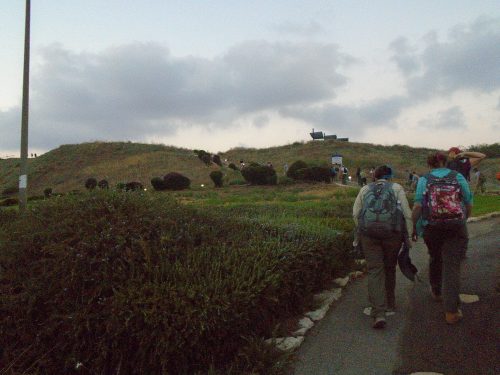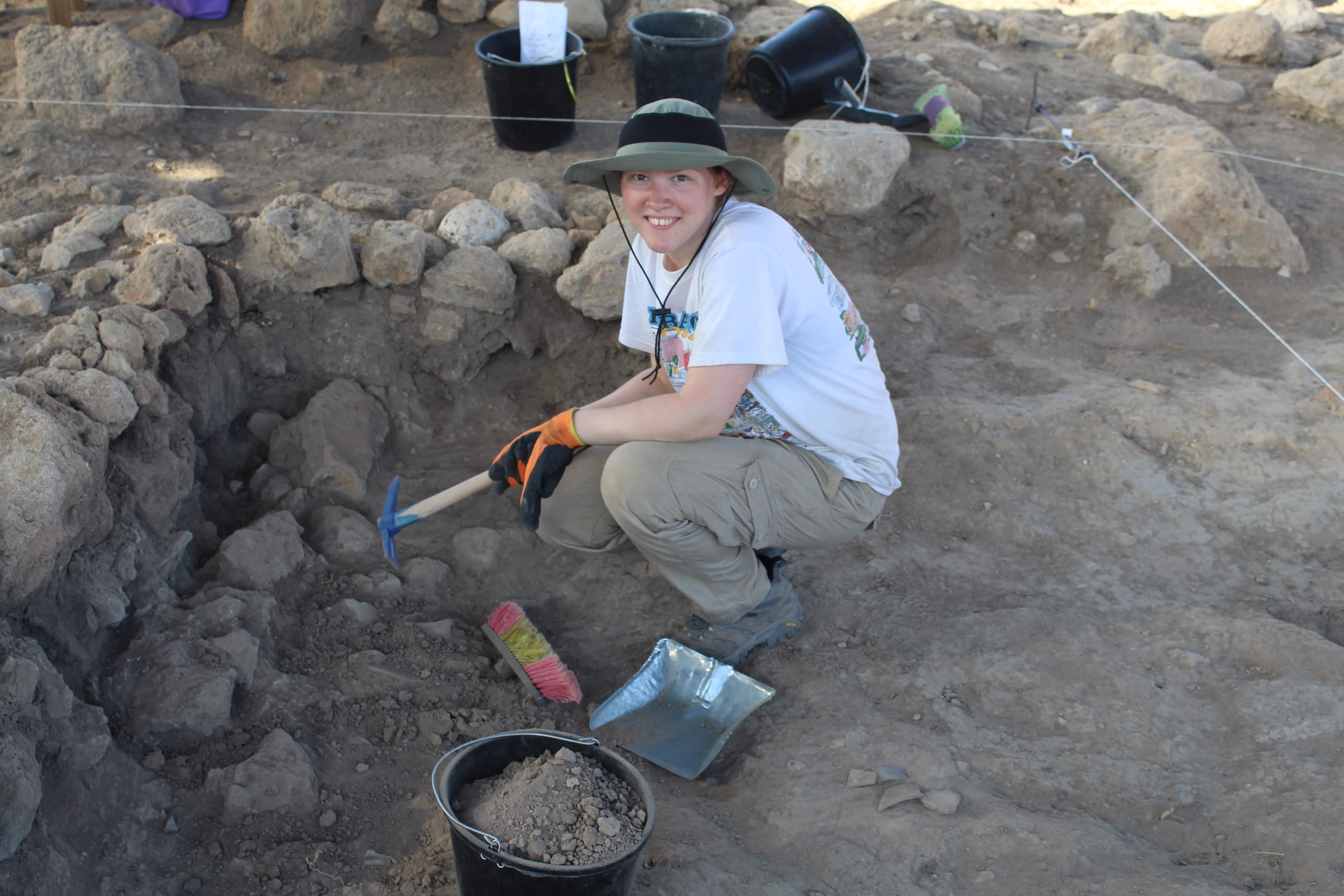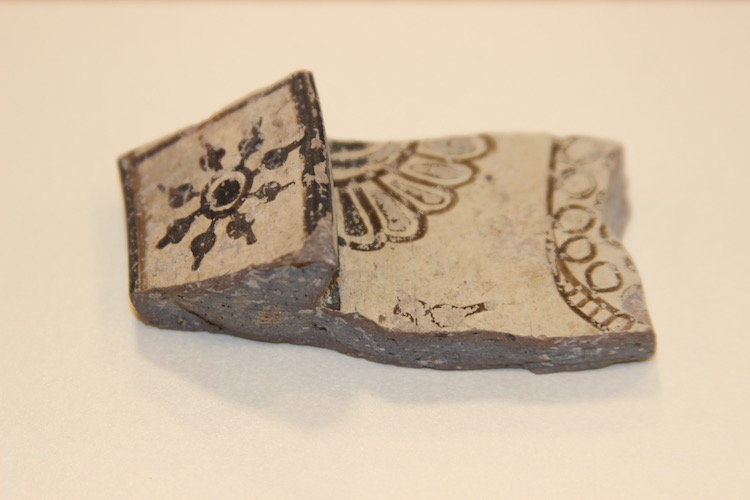By Allison Schwartz
The Tel Akko Total Archaeology Field School is the first experience I have ever had with archaeology. Besides ,of course, what we see from Hollywood. In the real world you may run into snakes but you won’t fall into a pit of them like good ole’ Indiana Jones. You also won’t use your handy dandy brush to uncover the skeleton of a Dinosaur, that is a completely different profession known as “Paleontology”. It is not the same thing. You also learn really quickly just how precious an Archaeologist’s trowel is to them. By reading this manual you will learn some handy dandy tips to help you not only get through this month of dirt and grime, but will also teach you how to have fun in Israel.
Number 1, Good Morning Tel Akko!
Every day at the Tel Akko Total Archaeology Field School we wake before the rooster. I know that because his lazy self is crowing when we are all on the Tel, having already been awake for an hour. I knew when I arrived in Israel this summer I’d be waking up earlier than the sun, but what I wasn’t ready for was being ok with that. I am in no way a morning person, so I was completely surprised when, during the first two weeks of the trip, I was up bright-eyed and bushy-tailed. Then it hit me, the third week. Bright eyes turned bleary and one scoop of instant coffee turned to three. The best part? I loved every minute of it. Sure a couple hours of more sleep would have been nice, but so is the chance of getting find of the day (which I still haven’t gotten close to).
Number 2, Learn how to Spell Archoe… Arkeol… Archeology
I still have trouble with this and I suppose I always will. All you need to know is that Archaeologists are treasure hunters with more paperwork… and less profit, but all the excitement!
Number 3, Indie had a whip… you have a brush. And yes there are snakes
We all know the look. A young and dashing Harrison Ford, idol in one hand whip in the other. It’d be cool if adventures really were death defying… but this one isn’t. Unless, of course, you use a brush to take a picture of a Scorpion… *Cough* that would be stupid…
Number 4, A drink could save a Life… beach
After a long day on the Tel, which ends about 12:00 pm, you’ll find a few students at Life Beach, about five minutes walk from home base, having a beer and swimming in the Mediterranean sea. It’s five o’Clock somewhere right? The real fun is Friday nights, after the city has died down for the Sabbath you and a few friends sit on the beach with a drink and watch Haifa in the distance.
Number 5, The difference between a pastiche and a pickaxe… size matters
It’s important to know what tools you are going to use throughout the dig. Namely, a Terea(a large hoe) a brush and dustpan, a pickaxe and a pastiche are your best friends. A pastiche and a pickaxe are not the same thing. Though the former is a miniaturized version of the latter, their uses are not interchangeable, unless you have the skill to work with what you have.
Number 6, Hydrate don’t DIE-drate
This tip is exactly what you think it is. DRINK WATER OR YOU WILL DIE. It is very hot here in Israel and, while you may feel dead tired… that doesn’t mean you want to be dead.
Number 7, Work Harder not Smarter.
As a beginner to the field of Archaeology you have to realize that your role in the scheme of things is that you are a worker bee. This isn’t a bad thing because you learn a lot by listening to your supervisors. This doesn’t mean you should slack off. The more you work the more you learn.
Number 8, If you’re gonna use a Terea, use gloves.
We are busy about eleven hours out of the day with about five hours of free time throughout the day. As long as what we do is safe and legal (which is easy when the drinking age is 18) the staff and faculty don’t care what we do. That being said, safety is key. Hint, hint.
Number 9, Is that dirt or a tan?
Speaking of being dirty – you will leave the Tel covered in dirt. It will be gross and it will be mud-like and showers will be the most amazing feeling ever. Then you will get dirty again at pottery washing. Dirt is a fact of life. Accept it.
Number 10, Run to 7 DAYS like your life depends on it!
Seven days is the nearby coffee shop/ beer place( that is not a bar), that everyone will go to for the free internet and the Goldstar Slow-brew. If you don’t get there before seven thirty in the evening you won’t be able to get on the internet and will have to go another 24 hours w/o internet access.
Number 11, You will have nightmares about shards of Pottery
You will see pottery everywhere. On the Tel you will dig up broken pieces of pottery every day. You will wash buckets of pottery every day. When that is all done and you think you finally have a break from the endless shards you will go on a tour of the beautiful Ba’hai gardens and you will walk on a seemingly endless path of G-D forsaken pottery shards.
Number 12, SUNSCREEN, JUST SUNSCREEN
Next, I don’t care who you think you are, you are not tougher than the sun. Always put sunscreen on or you might leave here looking like that guy in the White House.
Number 13,We’ll always have Akko.
This will be the most exhausting month of your life. You will be grimy, tired, exhausted, and frustrated. But, this will also be one of the best, most memorable months of your life. You will not only be doing (imho) semi-rewarding work but also meet hilarious, fun people. I’ve celebrated my twentieth birthday here and made a couple lifelong friends here and I know when we look back we will always have Akko.


